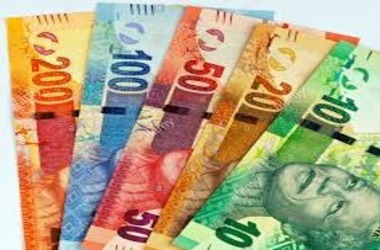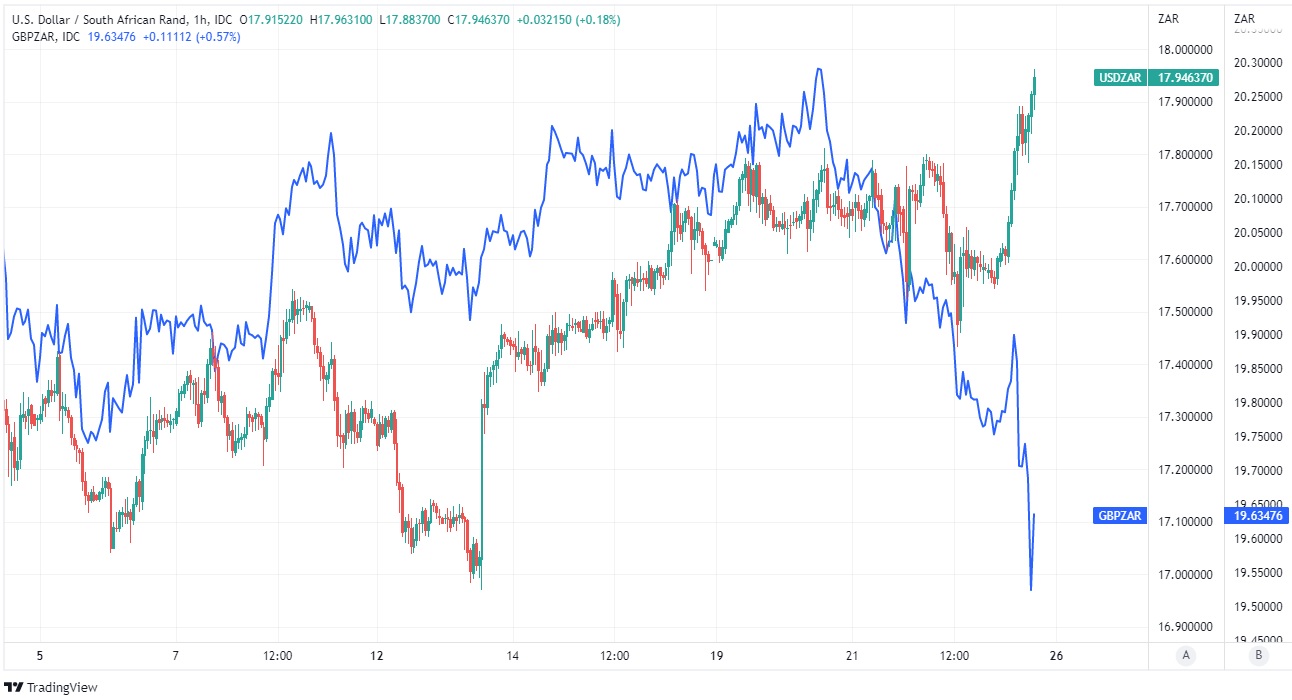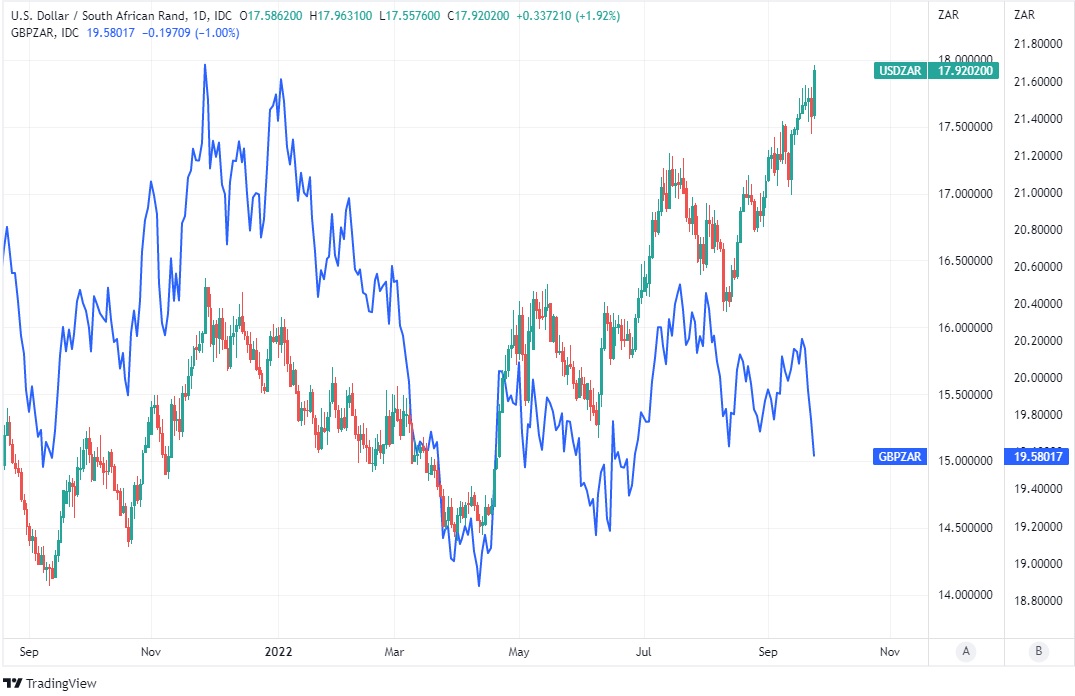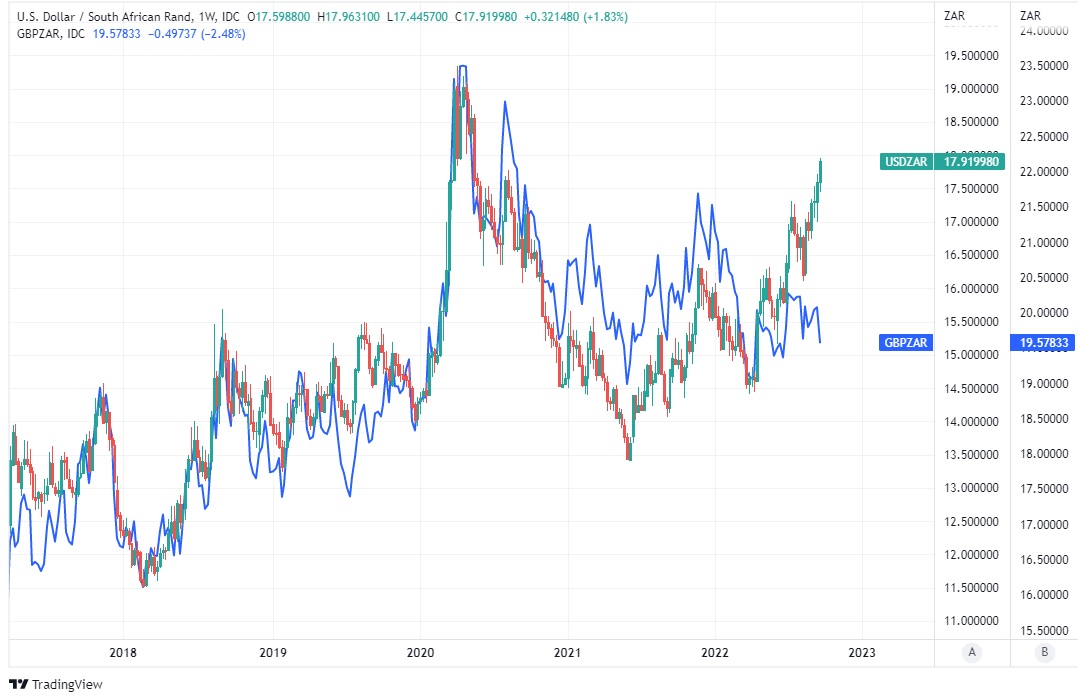 The South African Rand declined under volatile market circumstances ahead of the weekend, as experts repeated their pessimistic outlooks for the currency due in large part to the Federal Reserve’s (Fed) aggressive stance on interest rates. Only the British pound, the Norwegian krone, and the Brazilian real suffered greater losses than the South African rand on Friday amid unusual synchronized falls in global stock and bond markets.
The South African Rand declined under volatile market circumstances ahead of the weekend, as experts repeated their pessimistic outlooks for the currency due in large part to the Federal Reserve’s (Fed) aggressive stance on interest rates. Only the British pound, the Norwegian krone, and the Brazilian real suffered greater losses than the South African rand on Friday amid unusual synchronized falls in global stock and bond markets.
Sterling and UK government bonds fell the most, while Portuguese stock market indices suffered the most among developed economy stock markets, closely followed by French and German indices. In the meanwhile, oil prices fell by more than five percent, but this was not enough to sustain riskier currencies that had been weighed down by the consequences of prior exceptional price hikes.
“The ‘USD-smile’ continues to dominate FX market price action in the aftermath of the September Fed meeting,” says Valentin Marinov, head of FX strategy at Credit Agricole CIB. “Growing U.S. interest rates and UST yields, as well as a lack of market risk sentiment, are providing the USD with a boost.”
“Next week, the attention will be on the latest conflict events in Ukraine and their influence on the European energy market, the Eurozone September HICP and the German ifo, as well as the results of the Italian general election held over the weekend. In addition, emphasis will be placed on the US PCE statistics and Fed speakers” Marinov authored a Friday research report.

Friday’s losses for risky assets may have been worsened by drops in the British pound caused in part by UK government fiscal policies, despite the fact that many were already under pressure throughout the tumultuous second half of the week. When Japanese authorities intervened in the local market on Thursday to halt the Yen’s slide, which had set a new millennium low after the Federal Reserve’s (Fed) policy decision for September on Wednesday, riskier currencies saw a short but widespread upswing.

“In response to last week’s inflation surprise, the Fed increased rates by 75 basis points and foreshadowed more increases. The FOMC members’ view seems more hawkish. The median Fed Funds prediction for the end of 2022 is now 4.4%” BofA Global Research’s head of EM FX strategy, David Hauner, explains.
“We maintain a cautious stance on emerging markets as US interest rates continue to rise in response to persistent inflation. We anticipate some deterioration in the EM growth-inflation ratio. Long USD vs ZAR, CNH, INR, and KRW” Hauner reported on Friday.

Thursday’s reprieve was short-lived, and despite Friday’s drops, some analysts anticipate additional Dollar weakening compared to numerous currencies. Some may ignore Rand’s outperformance after the South African Reserve Bank’s (SARB) September move to raise its cash rate by 0.75 percentage points to 6.25 percent.
Notably, the SARB said that local inflation is expected to revert to the middle of its three-to-six percent goal range within the next year if projected decreases in energy and food costs materialize, hence improving Rand’s inflation-adjusted yield offering to the market.
Daria Parkhomenko, an emerging market FX strategist at RBC Capital Markets, argues that despite the SARB’s recent “front-loading” of rate rises, the rates narrative does not provide much support for ZAR against its LatAm counterparts until the SARB becomes much more hawkish.
In a Friday research briefing, she and her colleagues cautioned, “This comes against the background of our continuous USD-positive outlook and China’s dismal economic backdrop, thus the bias is to the upside for USD/ZAR.”




